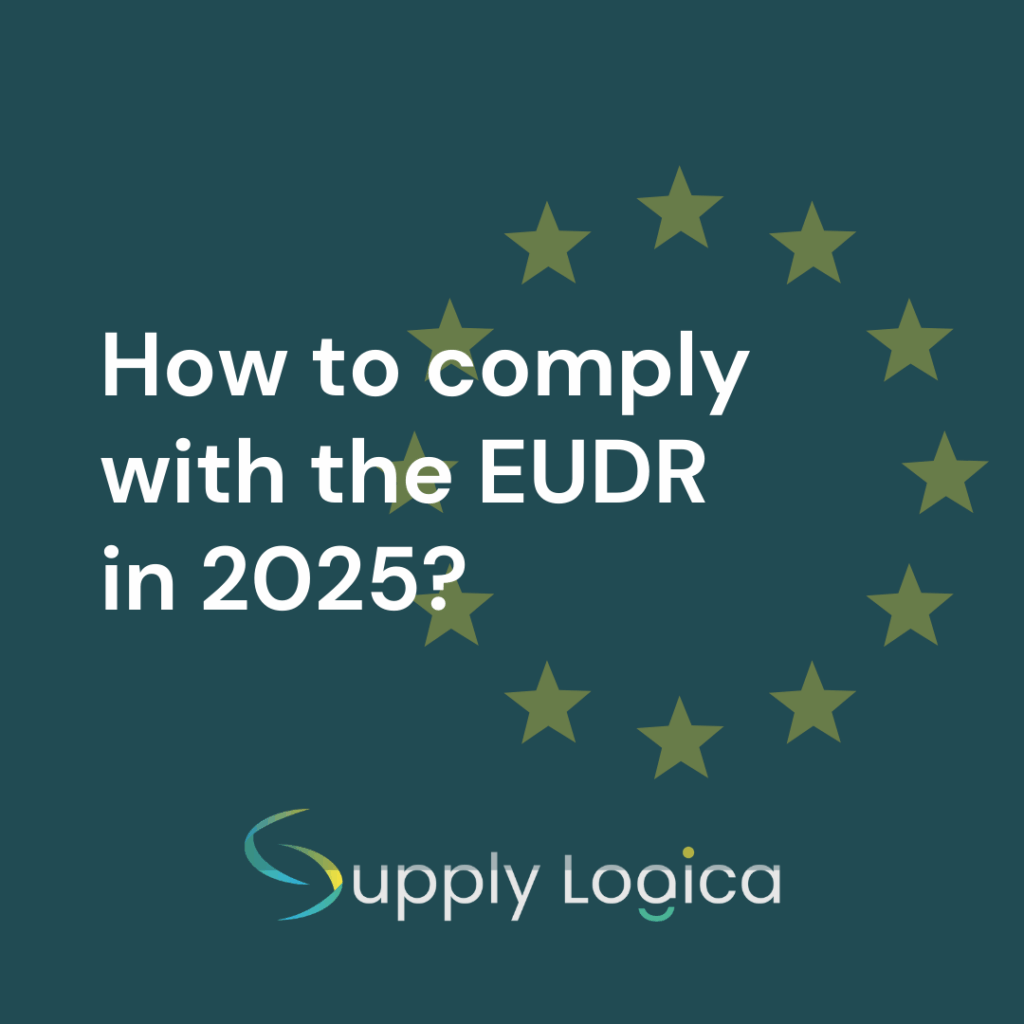A Guide for European Importers

From December 30, 2025, for medium and large companies, and from June 30, 2026, for small and micro-enterprises, the European Union Deforestation Regulation (EUDR – Regulation EU 2023/1115) will come fully into effect. For European importers, this entails a clear obligation: to prove that the products placed on the market are not linked to deforestation, forest degradation, or illegal practices.
This is a major challenge—logistical, legal, and technological. But it is also an opportunity to rethink sourcing strategies, strengthen transparency, and get ahead in a context where environmental requirements are becoming central. Here are the key steps to prepare effectively.
Identify the products concerned
The first step is to determine whether you are affected. If you import products containing timber, cocoa, coffee, palm oil, soy, rubber, or livestock-derived products (such as meat or leather), then yes, the EUDR applies to you. This remains true even if these raw materials are processed, blended, or integrated into other finished products such as furniture, cosmetics, or food.
It is therefore essential to conduct a precise inventory of your product portfolio, tracing back to the raw materials, to assess the regulation’s impact on your activities.
Understand the traceability requirements
At the heart of the EUDR is traceability—specifically, the ability to trace each batch back to its plot of origin. You will need to provide exact geographical coordinates proving that the area in question was not deforested or degraded after December 31, 2020. This often requires strengthening supplier relationships, demanding precise and reliable data, and ensuring that production is legal in the country of origin.
This is not always simple, especially if your supply chains are long and complex, but it is a non-negotiable requirement of the regulation.
Implement a due diligence process
The regulation requires a structured due diligence process. It is not just about collecting documents, but about being able to demonstrate that you have assessed the risks of non-compliance and taken appropriate action.
In practice, this means gathering key data on origin and volumes, analyzing potential risks (sensitive geographic areas, low-transparency suppliers, etc.), and implementing corrective measures when necessary. This work must be documented and ready to be presented in the event of an inspection.
Use the dedicated European platform
All due diligence declarations must be submitted through the European TRACES platform. This step will be mandatory before placing a product on the market. You will therefore need to ensure that your teams are trained, your information flows are well structured, and that declaration generation is seamlessly integrated into your import processes.
Each batch will require a specific declaration with its own data. This represents a major change in practice, requiring reliable digital traceability.
Anticipate inspections (and consequences)
Competent authorities in each Member State will be responsible for inspections. These will be risk-based, taking into account the type of product, the country of origin, and the company’s behavior. Non-compliance may result in severe penalties: fines, product withdrawals, or even market bans.
It is therefore strongly recommended to establish regular internal audits, formalize procedures, and involve your partners as early as possible to avoid unpleasant surprises.
Integrate EUDR compliance into CSR and procurement strategy
Compliance with the EUDR should not be seen merely as an administrative formality. It is also a lever to strengthen CSR commitments, reassure clients and partners, and build stronger, more sustainable supply chains.
Some companies are even choosing to anticipate requirements in order to position themselves as exemplary suppliers. And in a context where demand for responsible products is growing, this can become a significant competitive advantage.
A transformation to start now
EUDR compliance is not a task to postpone until the last minute. It represents a profound transformation of sourcing, traceability, and risk management practices. The earlier you prepare, the more likely you are to turn this obligation into a strategic opportunity.
To go further:
For more information on how Supply Logica can support you in your journey towards EUDR compliance, contact our team.